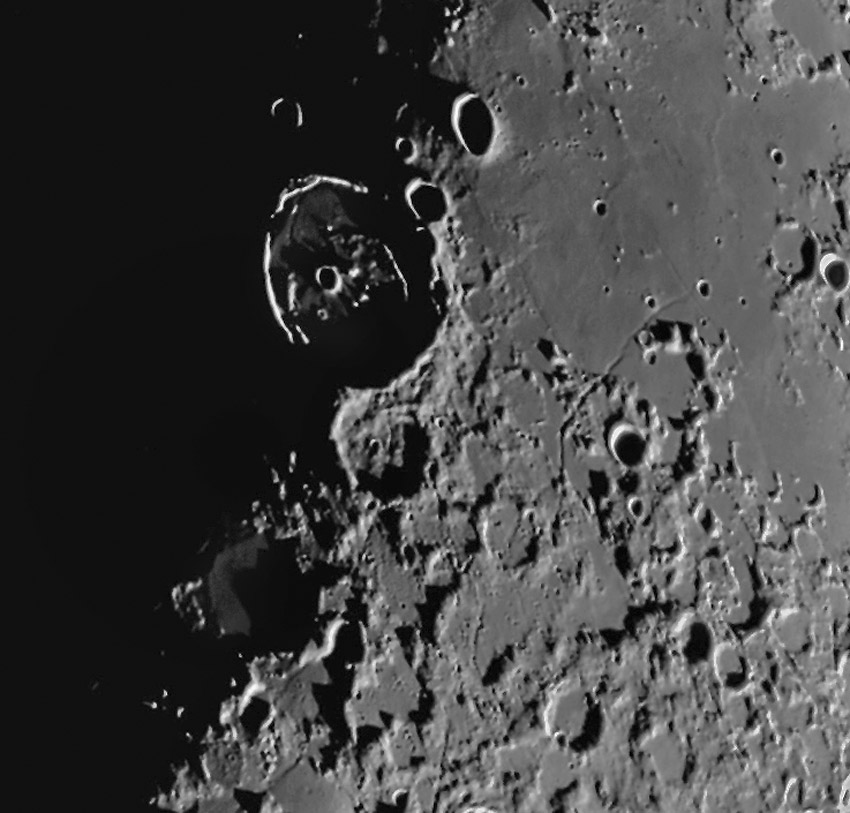Difference between revisions of "February 9, 2014"
| Line 1: | Line 1: | ||
__NOTOC__ | __NOTOC__ | ||
=Shadow Magnification= | =Shadow Magnification= | ||
| − | |||
<!-- ws:start:WikiTextHeadingRule:0:<h1> --> | <!-- ws:start:WikiTextHeadingRule:0:<h1> --> | ||
<!-- ws:start:WikiTextLocalImageRule:6:<img src="/file/view/LPOD-Feb9-14.jpg/488198684/LPOD-Feb9-14.jpg" alt="" title="" /> -->[[File:LPOD-Feb9-14.jpg|LPOD-Feb9-14.jpg]]<!-- ws:end:WikiTextLocalImageRule:6 --><br /> | <!-- ws:start:WikiTextLocalImageRule:6:<img src="/file/view/LPOD-Feb9-14.jpg/488198684/LPOD-Feb9-14.jpg" alt="" title="" /> -->[[File:LPOD-Feb9-14.jpg|LPOD-Feb9-14.jpg]]<!-- ws:end:WikiTextLocalImageRule:6 --><br /> | ||
| − | <em>image by [mailto:varney_gary@yahoo.com Gary Varney], Pembroke Pines, Florida</em><br /> | + | <em>image by [mailto:varney_gary@yahoo.com" rel="nofollow Gary Varney], Pembroke Pines, Florida</em><br /> |
<br /> | <br /> | ||
| − | Although topographic profiles from LRO QuickMap reveal things previously unknown to me, I find it more pleasing to learn new things from telescopic viewing or imaging. Gary's sunrise view across Posidonius and Le Monnier provides plenty of surprises. The shadows reveal the floor of Posidonius to be more exotic than it normally seems. It is very impressive that shadows make the meandering rille crossing the western part of the floor easily visible, even though it may be below the resolution limit of the image. Also remarkable is the depiction of a shadow-casting ridge just west (to the left) of the rille. This is not hinted at in excellent [http://www.lpod.org/archive/LPOD-2004-09-15.htm images] under high illumination, but Jim Phillips' classic [http://www.lpod.org/archive/LPOD-2005-05-02.htm image] does show that the floor bends downward, but west of where this shadow starts. An LRO topo traverse does reveal that there is a 130 m vertical drop off in 6 km of horizontal distance. Gary's image captures a significant topographic feature that is totally invisible in any other imagery I've seen, but caused me to use LRO topography to investigate a part of the crater floor that perhaps never otherwise would have been looked at. Finally, the odd shadow across the floor of Le Monnier is also unexpected, for none of the rim looks irregular enough to cast such a mountain of a shadow. Isn't <em>shadow magnification</em> wonderful!</span><br /> | + | Although topographic profiles from LRO QuickMap reveal things previously unknown to me, I find it more pleasing to learn new things from telescopic viewing or imaging. Gary's sunrise view across Posidonius and Le Monnier provides plenty of surprises. The shadows reveal the floor of Posidonius to be more exotic than it normally seems. It is very impressive that shadows make the meandering rille crossing the western part of the floor easily visible, even though it may be below the resolution limit of the image. Also remarkable is the depiction of a shadow-casting ridge just west (to the left) of the rille. This is not hinted at in excellent [http://www.lpod.org/archive/LPOD-2004-09-15.htm" rel="nofollow images] under high illumination, but Jim Phillips' classic [http://www.lpod.org/archive/LPOD-2005-05-02.htm" rel="nofollow image] does show that the floor bends downward, but west of where this shadow starts. An LRO topo traverse does reveal that there is a 130 m vertical drop off in 6 km of horizontal distance. Gary's image captures a significant topographic feature that is totally invisible in any other imagery I've seen, but caused me to use LRO topography to investigate a part of the crater floor that perhaps never otherwise would have been looked at. Finally, the odd shadow across the floor of Le Monnier is also unexpected, for none of the rim looks irregular enough to cast such a mountain of a shadow. Isn't <em>shadow magnification</em> wonderful!</span><br /> |
<br /> | <br /> | ||
| − | <em>[mailto:tychocrater@yahoo.com Chuck Wood]</em><br /> | + | <em>[mailto:tychocrater@yahoo.com" rel="nofollow Chuck Wood]</em><br /> |
<br /> | <br /> | ||
<strong>Technical Details</strong><br /> | <strong>Technical Details</strong><br /> | ||
| Line 15: | Line 14: | ||
<strong>Related Links</strong><br /> | <strong>Related Links</strong><br /> | ||
<em>[http://lpod.wikispaces.com/21st+Century+Atlas+of+the+Moon 21st Century Atlas]</em> chart 8.<br /> | <em>[http://lpod.wikispaces.com/21st+Century+Atlas+of+the+Moon 21st Century Atlas]</em> chart 8.<br /> | ||
| − | Gary's Flickr [http://www.flickr.com/photos/gpvarney/12373272765/ photostream]<br /> | + | Gary's Flickr [http://www.flickr.com/photos/gpvarney/12373272765/" rel="nofollow photostream]<br /> |
<br /> | <br /> | ||
<hr /> | <hr /> | ||
Revision as of 21:55, 4 January 2015
Shadow Magnification

image by " rel="nofollow Gary Varney, Pembroke Pines, Florida
Although topographic profiles from LRO QuickMap reveal things previously unknown to me, I find it more pleasing to learn new things from telescopic viewing or imaging. Gary's sunrise view across Posidonius and Le Monnier provides plenty of surprises. The shadows reveal the floor of Posidonius to be more exotic than it normally seems. It is very impressive that shadows make the meandering rille crossing the western part of the floor easily visible, even though it may be below the resolution limit of the image. Also remarkable is the depiction of a shadow-casting ridge just west (to the left) of the rille. This is not hinted at in excellent " rel="nofollow images under high illumination, but Jim Phillips' classic " rel="nofollow image does show that the floor bends downward, but west of where this shadow starts. An LRO topo traverse does reveal that there is a 130 m vertical drop off in 6 km of horizontal distance. Gary's image captures a significant topographic feature that is totally invisible in any other imagery I've seen, but caused me to use LRO topography to investigate a part of the crater floor that perhaps never otherwise would have been looked at. Finally, the odd shadow across the floor of Le Monnier is also unexpected, for none of the rim looks irregular enough to cast such a mountain of a shadow. Isn't shadow magnification wonderful!
" rel="nofollow Chuck Wood
Technical Details
Feb 4, 2014. 8" Newtonian Reflector (Orion XT8-i) + Shorty 2x Barlow + Orion Starshoot Solar System Color Imaging Camera-IV (1280x1024 @ 15fps); Dual-axis cylindrical-bearing eq platform.
Related Links
21st Century Atlas chart 8.
Gary's Flickr " rel="nofollow photostream



